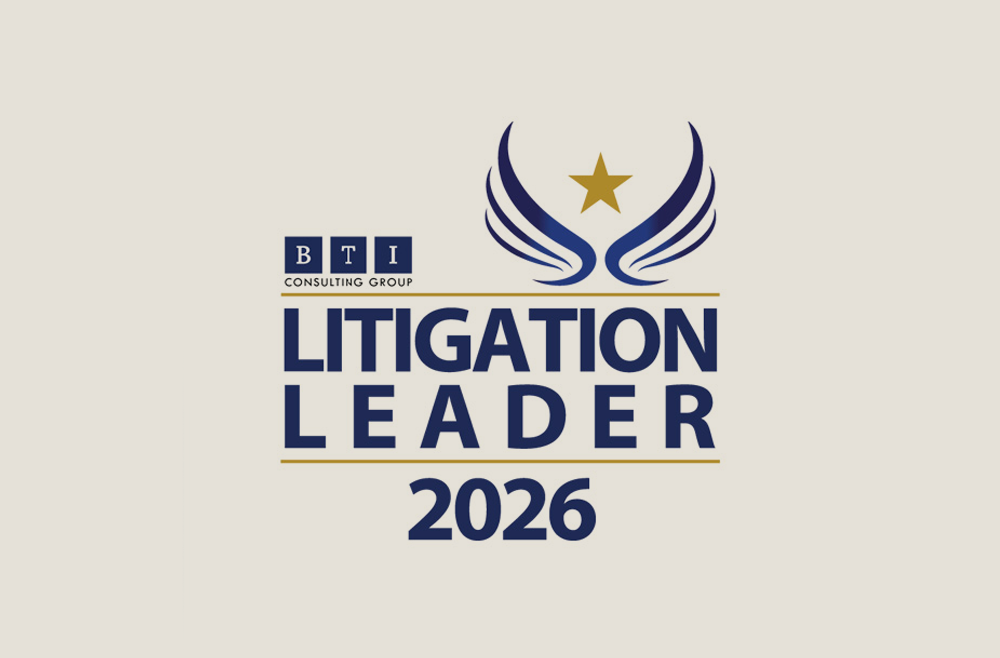Tax Relief, Unemployment Insurance Reauthorization, and Job Creation Act of 2010 Amends Federal Estate, Gift and Generation-Skipping Tax Laws
Hinshaw Alert | 6 min read
Dec 21, 2010
Hinshaw & Culbertson LLP recently published a newsletter indicating that the estate planning environment was unclear. Since then, the Tax Relief, Unemployment Insurance Reauthorization, and Job Creation Act of 2010 (Act) was passed. The adoption of the Act, which affects estate, gift and generation-skipping tax provisions applicable to 2010, 2011 and 2012, provides temporary clarity. But as the Act expires at the end of 2012, the federal estate tax will return to 2001 levels unless Congress acts again.
- Tax-Free Amount Under the Federal Estate Tax Increases to $5 Million; Estate Tax Rate Falls to 35% in 2011 and 2012
- New Federal Estate Tax Rules Apply Retroactively to Decedents Dying in 2010 Unless EGTRRA Treatment Is Elected
- 2010 Tax Act Expires and 2001 Estate Tax Provisions Apply in 2013. . . For Now
- Status of State Estate and Inheritance Taxes
- Gift Tax Provisions Unchanged by Passage of Tax Act
- Generation-Skipping Tax Provisions
Tax-Free Amount Under the Federal Estate Tax Increases to $5 Million; Estate Tax Rate Falls to 35% in 2011 and 2012
In 2011 and 2012, a taxpayer may transfer $5 million at death tax-free. With proper planning, a married couple may transfer up to $10 million free of estate taxes. The $5 million amount will be adjusted for inflation in 2012. If federal estate taxes are due, the maximum rate to be applied will be 35 percent in 2011 and 2012. These provisions expire on December 31, 2012. The Tax Relief, Unemployment Insurance Reauthorization, and Job Creation Act of 2010 has adopted an important new feature called “portability,” which only applies to married couples. A surviving spouse may now carry over the unused tax-free portion of the predeceased spouse’s estate if both deaths occur after 2010 and before 2013. Contact your Hinshaw attorney to discuss this opportunity further.
New Federal Estate Tax Rules Apply Retroactively to Decedents Dying in 2010 Unless EGTRRA Treatment Is Elected
Upon passage of the Tax Relief, Unemployment Insurance Reauthorization, and Job Creation Act of 2010 (Act), the federal estate tax will apply retroactively to 2010. The due date for federal estate tax returns related to deaths in 2010 will be nine months from the date of enactment of the Act. The tax-free amount applicable in 2010 is $5 million, and the maximum federal estate tax rate applicable is 35 percent. The income tax basis of each asset included in the gross estate will be stepped up to its respective date of death value. This will be a favorable development as to many decedents who died in 2010. However, the executor of the estate of a decedent who died in 2010 may elect out of federal estate tax treatment in 2010.
For executors who elect out of federal estate tax treatment in 2010, an alternative tax system—EGTRRA—will apply in 2010. A taxpayer who inherits property in 2010 under EGTRRA will not generally pay any taxes at the time of inheritance. However, the taxpayer may have to recognize a taxable gain when he or she sells that property in the future because, as a general rule, the taxpayer will inherit the decedent’s income tax basis (the cost of an asset used to determine tax liabilities) in the property.
Fortunately, there are three important exceptions to the general rule denying beneficiaries stepped up basis in inherited property in 2010 under EGTRRA. First, each decedent may step up to $1.3 million of value in property held at death. Second, each decedent may step up an additional $3 million of value in property transferred to a surviving spouse, so long as it was transferred in the correct form. Finally, certain loss carryovers can also increase the basis step up amount. No basis step up allocations are allowed as to retirement plans or individual retirement accounts (IRAs). The amount of basis step up allocated among a decedent’s assets must be reported on a return filed with the decedent’s 2010 federal income tax return or at a later date specified by the U.S. Internal Revenue Service (IRS).
2010 Tax Act Expires and 2001 Estate Tax Provisions Apply in 2013 . . . For Now
Because the Tax Relief, Unemployment Insurance Reauthorization, and Job Creation Act of 2010 expires at the end of 2012, the amount of property that can be transferred tax-free at death will be $1 million per taxpayer in 2013 and future years unless Congress acts again. Married couples will be able to transfer up to $2 million of combined value tax-free, provided that they planned properly. However, because both all of the equity in one’s home and the value of all of one’s investments count against the applicable exclusion amount, even middle class families may end up with taxable estates. Starting in 2013, the federal estate tax rate may be as high as 55 percent. A tax credit (as opposed to a deduction) will again be allowed for state death taxes, as will a deduction when a small business is a substantial portion of an estate. The estate tax bill for the estates of persons who die in 2013 may therefore be much higher than for those who die in 2010, 2011 or 2012.
Status of State Estate and Inheritance Taxes
The changes in the federal estate tax should not affect the state inheritance tax liabilities imposed by states, such as Indiana, that have their own inheritance tax regimes. Many states, however, tie their estate taxes to the federal estate tax state death tax credit. Because the Tax Relief, Unemployment Insurance Reauthorization, and Job Creation Act of 2010 extends the date that the federal deduction—i.e., not a credit—applies to state death taxes, the estate tax situation in many of those states remains unclear. It appears that neither Florida nor Illinois may have an estate tax in 2010, 2011 or 2012. However, legislation to provide for one in 2011 and 2012 is a strong possibility.
Barring other changes by Congress, there will be a state death tax credit on the federal estate tax return beginning in 2013. In Florida and Illinois, this would mean that those states would impose a state estate tax equal to the state death tax credit allowed on the federal estate tax return.
Gift Tax Provisions Unchanged by Passage of Tax Act
The Tax Relief, Unemployment Insurance Reauthorization, and Job Creation Act of 2010 did not change the federal gift tax applicable to lifetime transfers made in 2010. That tax in 2010 includes a special 35 percent maximum gift tax rate, and all other gift tax provisions in effect at the end of 2009. Annual exclusion gifts, tuition gifts and medical expense gifts remain tax-free, and each taxpayer may still make $1 million of tax-free gifts throughout his or her lifetime. The federal gift tax continues to be based on value and traditional valuation rules will still apply.
In 2011 and 2012, the aggregate lifetime tax-free amount under the federal gift tax increases to $5 million per taxpayer. A maximum 35 percent gift tax rate will apply if gift taxes are due. The portability concept discussed earlier in this newsletter will also apply. Taxpayers who have already exhausted their lifetime tax-free limit may give up to an additional $4 million (in aggregate) per taxpayer in 2011 and 2012. Given the new limits and the late hour, it may be wise to hold off any taxable gifts in excess of the 2010 lifetime maximum until 2011 when the lifetime limit increases.
Generation-Skipping Tax Provisions
The generation-skipping tax (GST) is a penalty tax on certain transfers to grandchildren and on other inter-generational transfers. The Tax Relief, Unemployment Insurance Reauthorization, and Job Creation Act of 2010 (Act) increased the GST exemption to $5 million per taxpayer for transfers made during 2010, 2011 or 2012, regardless of whether the transfers were made during the taxpayer’s lifetime or at death. This change creates an excellent estate planning opportunity in 2010. The increase may also cause unintended consequences for taxpayers with generation-skipping features in their estate plans. Such taxpayers, or those who lost a loved one in 2010, should discuss this issue with their estate planning attorney. The Act also made a number of technical corrections to the GST, which will make the application of the tax much clearer and fairer.
Related Capabilities
Featured Insights

Press Release
Oct 22, 2025
Hinshaw & Culbertson LLP Launches New Website and Refreshed Brand

Press Release
Sep 26, 2025
Hinshaw Recognized as a “Leader in Litigation” in the BTI Consulting Litigation Outlook 2026 Survey

Privacy, Cyber & AI Decoded Alert
Sep 23, 2025
Fall 2025 Regulatory Roundup: Top U.S. Privacy and AI Developments for Businesses to Track

Press Release
Sep 15, 2025
Hinshaw Achieves 2024–2025 Mansfield Rule Certification Plus Status

In The News
Sep 5, 2025
Jessica Riley Reflects in a Law360 Story on Lessons She Learned as a Junior Lawyer

Press Release
Aug 25, 2025
Trial Spotlight: Hinshaw Prevails in ERISA Fiduciary Fraud Case

Press Release
Aug 21, 2025
102 Hinshaw Lawyers Recognized in 2026 Editions of The Best Lawyers in America® and Ones to Watch™

Press Release
Jul 28, 2025
Hinshaw Recognized as a Client Service Trailblazer in the BTI Consulting Client Service A-Team 2025

Press Release
Jun 17, 2025
Hinshaw Named to the 2025 Pro Bono Recognition Roster by the Public Interest Law Initiative






